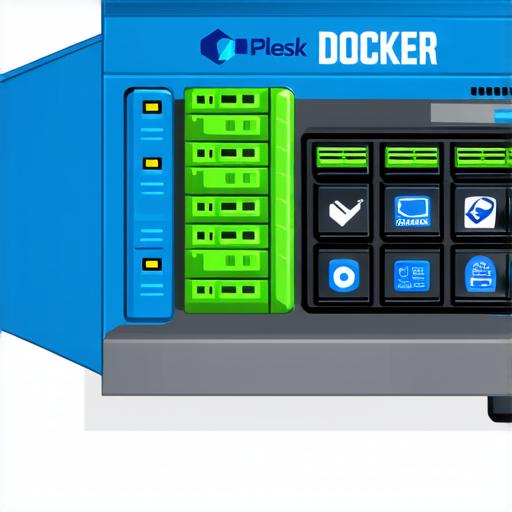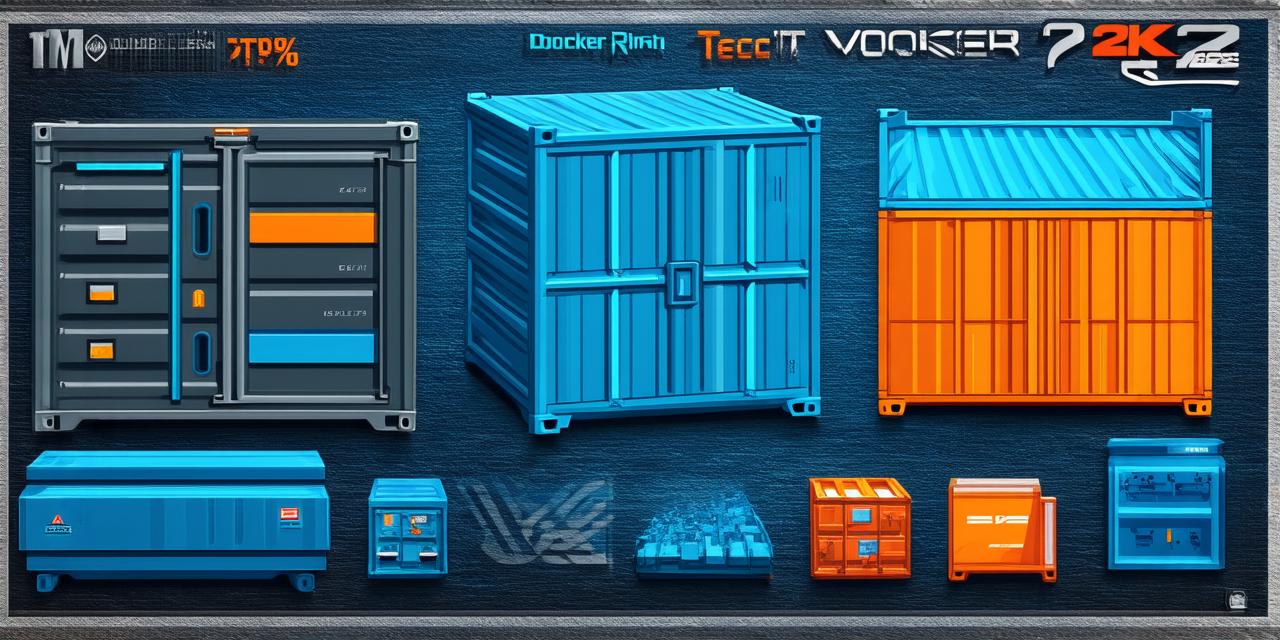If you are a web developer looking for an efficient and scalable way to manage your web hosting control panels, Docker might just be the solution. Docker is a platform that allows developers to package their applications into containers that can run consistently across different environments, including web servers.
What is Docker?
Docker is a containerization platform that allows developers to create, deploy, and run applications in containers. A container is a lightweight and portable package of software that includes everything the application needs to run, such as code, libraries, dependencies, configuration files, and more. Containers are isolated from each other and can run on different environments without affecting the performance or stability of other containers.
Why use Docker for web hosting control panels?
There are several reasons why web developers should consider using Docker for managing their web hosting control panels. First, Docker provides a consistent environment for your applications to run in. This means that you can easily deploy and manage your web hosting control panels on different environments, such as development, staging, and production, without worrying about compatibility issues or configuration changes.
Second, Docker makes it easy to scale your web hosting control panels horizontally. With Docker, you can create multiple instances of your application and distribute them across different servers or clouds, allowing your web hosting control panels to handle increased traffic and demand.
Third, Docker is a lightweight platform that doesn’t require a lot of resources. This means that you can run multiple containers on the same server, reducing your infrastructure costs and improving your resource utilization.
Fourth, Docker provides a high level of security for your web hosting control panels. Containers are isolated from each other, making it difficult for attackers to compromise one container and gain access to others. Additionally, you can use Docker security features such as network policies, storage volumes, and secrets management to further secure your web hosting control panels.
How to set up Docker for web hosting control panels
To get started with Docker for managing your web hosting control panels, you will need to install Docker on your server or cloud environment. You can download the latest version of Docker from the official website () and follow the installation instructions.
Once you have installed Docker, you will need to create a Dockerfile for your web hosting control panels. A Dockerfile is a script that defines how to build a Docker image, which is a lightweight package of software that includes everything your application needs to run. You can use a text editor such as nano or vim to create your Dockerfile and include instructions such as installing dependencies, copying files, and running commands.
Once you have created your Dockerfile, you can build a Docker image using the docker build command. This will create a lightweight package of software that includes everything your web hosting control panels need to run.
To manage multiple instances of your web hosting control panels, you can use Docker Compose. Docker Compose is a tool that allows you to define and run multi-container applications. With Docker Compose, you can create a YAML file that defines your application and its services, including the images to use, the ports to expose, and the environment variables to set. You can then use the docker-compose command to build and run your application.
Real-life examples of using Docker for web hosting control panels
Let’s take a look at some real-life examples of how web developers are using Docker for managing their web hosting control panels:
-
WordPress: WordPress is one of the most popular content management systems in use today, and many web developers use it to build websites. WordPress can be easily run on a Docker container, allowing developers to quickly deploy and manage their WordPress installations on different environments.
-
Laravel: Laravel is a popular PHP framework that is used for building web applications. Laravel can also be easily run on a Docker container, making it an excellent choice for managing web hosting control panels.
-
Jenkins: Jenkins is a continuous integration and delivery platform that is widely used by web developers to automate their build and deployment processes. Jenkins can be run on a Docker container, allowing developers to quickly deploy and manage Jenkins instances on different environments.
-
Apache Kafka: Apache Kafka is a distributed streaming platform that is used for building real-time data pipelines. Kafka can be easily run on a Docker container, making it an excellent choice for managing web hosting control panels that require real-time data processing.

FAQs
1. What are the benefits of using Docker for managing web hosting control panels?
Docker provides a consistent environment for your applications to run in., Docker makes it easy to scale your web hosting control panels horizontally., Docker is a lightweight platform that doesn’t require a lot of resources., and Docker provides a high level of security for your web hosting control panels.
1. How do I set up Docker for managing my web hosting control panels?
Install Docker on your server or cloud environment, create a Dockerfile for your web hosting control panels, build a Docker image using the docker build command, and run the Docker image on your server or cloud environment using the docker run command.
1. Can I use Docker Compose to manage multiple instances of my web hosting control panels?
Yes, Docker Compose is a tool that allows you to define and run multi-container applications, including web hosting control panels.
Summary
Docker



